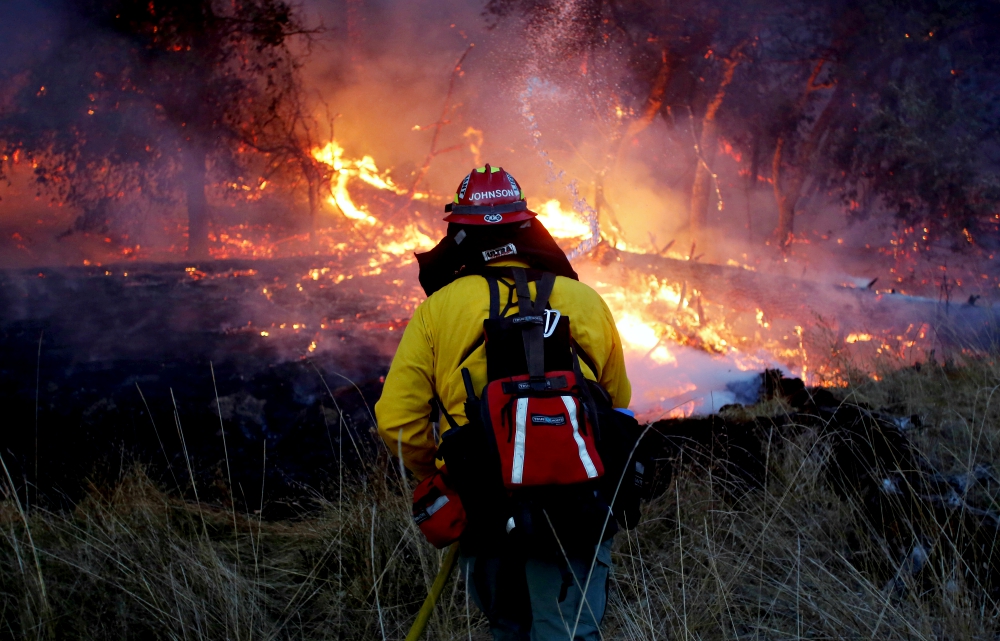
A firefighter battles a wildfire Oct. 14 near Santa Rosa, California. (CNS/Reuters/Jim Urquhart)
Approximately 80 percent of the students at New York University say they are "overwhelmed."
That's the news we heard this fall at the opening session of the campus chaplains' meeting. The psychologist who presented the data asked for our "help." We were glad to offer it, but we kind of looked at each other somewhat helplessly ourselves.
Does nature have resilience, one chaplain asked? A wonderful argument ensued; "yes" was the conclusion.
Nature has resilience and so do students and so do all humans. It's just that we can also be pushed too far and begin to feel like the ozone layer, itself perhaps pushed too far and overwhelmed through our burning of fossil fuels and emission of greenhouse gases.
During the chaplains' meeting, I found myself inspired by a man from Puerto Rico who studies its forests. Someone asked him if the forests will come back. He immediately responded yes, "although it will take a while."
Advertisement
Many argue that the forest fires in out west in the U.S. are actually good for the forest. They are part of an evolutionary cycle that allows for longevity.
When faith in resiliency accompanies some scientific data, like that of the Puerto Rican expert on forests or other experts on forest fires, one is forced to wonder how to treat college students.
Should we put more obstacles in their way? Should we throw more hurricanes or wildfires, metaphorically speaking, at them? Should helicopter parents turn in their pilot's licenses? Should difficulty be a part of the curriculum? Or has something gone too far, making resiliency an imposter?
Obviously, the answer can only come one by one. But clearly many college students wonder about their future, with so many loans, and about the planet's future, with so many loans of its own. That lack of a future makes for a generation of extraordinary activists, whom we see all around, especially on climate change. It also makes everyday living harder and harder.
Richard Sagor, founder of the Institute for the Study of Inquiry in Education, defines resilience as "the set of attributes that provide people with the strength and fortitude to confront the overwhelming obstacles they are bound to face in life." I find it odd that his definition includes the word "overwhelm." It's evident he has a reason to do so, perhaps that being overwhelmed is a temporary, not a permanent matter.
What can a chaplain or a forester say about being overwhelmed besides something resilient like, "We bend but don't break"? Or "Trouble is a great teacher"? Or my favorite definition of the Gospel from Canadian theologian Douglas John Hall: "the permission and commandment to enter difficulty with hope."
You might want to fight the doom and gloom of the college counselors with a sense of hope, which is what leads to resilience. The scariest part of being overwhelmed is when you overwhelm whole species. That damage is permanent. When you feel overwhelmed all the time, you need hope to be able to be resilient.
College chaplains have our work cut out for us. It is the hope machine that allows religion (or faith in the future) to release resiliency.
[Donna Schaper is senior minister of Judson Memorial Church in New York City.]








